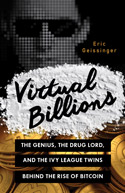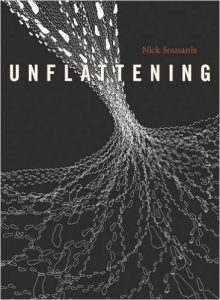 “Virtual Billions,” by Eric Geissinger.
“Virtual Billions,” by Eric Geissinger.
(Prometheus Books, P 295, $25.00)
This is the book that will explain to you what is Bitcoin and how they came to be, if you only have heard about them and thought it was just another App. If you are looking for a roller-coaster ride in the underworld of alternative finance, “Virtual Billions” is the book as well. You will learn about the reclusive genius creator of Bitcoins, Satoshi Nakamoto, who, on his own, decided to wage war against the world financial and banking system, and the prince of darkness himself, Ross Ulbricht, who used Bitcoins to create the largest Dark Web superstore, Silk Road, where drugs, hacking service, counterfeit money and even murdering could be purchased. At the opposite end of the spectrum, Geissenger tells the story of the multi-talented Winklevoss twins, Harvard, Olympics, lawsuit against Facebook’s Zuckerberg, for stealing their idea (which they won), and their contribution to the rise of the Bitcoin cause.
Putting “Virtual Billions” down was impossible, the stories being so captivating and strangely unique in their excesses. The fact that this parallel banking world has fueled legions of steroid-pumped-up coding hacks, and “canny” bitcoin miners, added to my curiosity. For certain, the book will make you feel like a dinosaur, especially if your job consists in reading books, and on paper that is. The world of bitcoins is so far from my consciousness that I could not help pondering what kind of world is taking shape out there. Once you put the book down, you may catch yourself looking at your neighbors suspiciously, cautious before making another online purchase or placing another call on your smartphone, or else grateful that, at long last, after the banks took the country down the path of the Dust Bowl, that some individuals are doing something to replace them.




